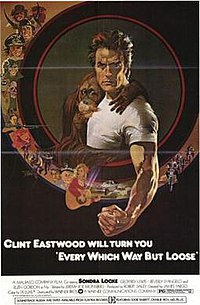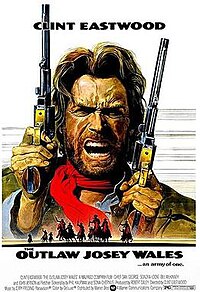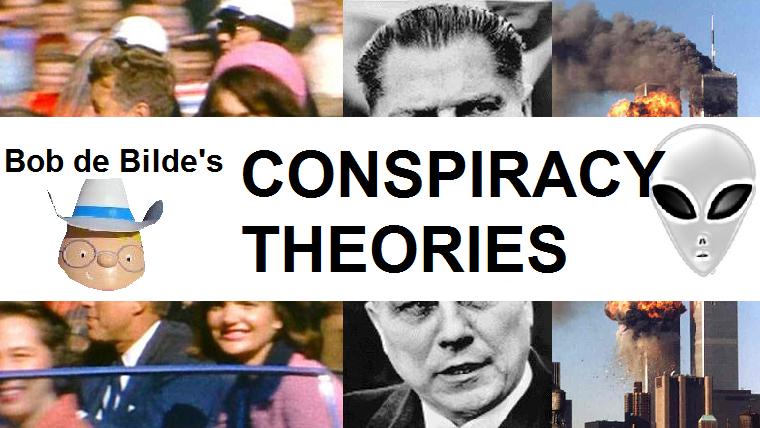 Every Which Way But Loose is a 1978 American film, released by Warner Brothers, produced by Robert Daley and directed by James Fargo. It starred Clint Eastwood in an uncharacteristic and offbeat comedy role, as Philo Beddoe, a trucker and brawler roaming the American West in search of a lost love while accompanied by his friend/manager Orville and his pet orangutan, Clyde. In the process Philo manages to cross a motley assortment of characters, including a pair of police officers and an entire motorcycle gang (the "Black Widows"), who end up pursuing him for revenge.
Every Which Way But Loose is a 1978 American film, released by Warner Brothers, produced by Robert Daley and directed by James Fargo. It starred Clint Eastwood in an uncharacteristic and offbeat comedy role, as Philo Beddoe, a trucker and brawler roaming the American West in search of a lost love while accompanied by his friend/manager Orville and his pet orangutan, Clyde. In the process Philo manages to cross a motley assortment of characters, including a pair of police officers and an entire motorcycle gang (the "Black Widows"), who end up pursuing him for revenge.Eastwood's appearance in the film, after his string of spaghetti western and Dirty Harry roles, somewhat startled the film industry and he was reportedly advised against making it. Panned by critics, the film went on to become an enormous success and became, along with its 1980 sequel Any Which Way You Can, two of the highest grossing Eastwood films.
 Philo Beddoe is a truck driver for a pipe supply company and a part-time auto mechanic living in California's San Fernando Valley. He lives in a small house behind that of his best friend Orville Boggs and his mother, Ma. Philo also has a pet orangutan named Clyde. Philo makes money on the side by hustling as a bare-knuckle fighter; he is often compared to another fighter named Tank Murdock (Barnes), of legendary status.
Philo Beddoe is a truck driver for a pipe supply company and a part-time auto mechanic living in California's San Fernando Valley. He lives in a small house behind that of his best friend Orville Boggs and his mother, Ma. Philo also has a pet orangutan named Clyde. Philo makes money on the side by hustling as a bare-knuckle fighter; he is often compared to another fighter named Tank Murdock (Barnes), of legendary status.
One night Philo becomes smitten with Lynn Halsey-Taylor, an aspiring country music singer he meets at the Palamino, a local honky-tonk. His relationship with her seems to be going well until one day she and her camping trailer disappear from the ramshackle trailer park. Believing that he is falling for her, Philo decides to set off for Lynn's home in Denver, Colorado.
Throughout all of this is a subplot involving a motorcycle gang called "The Black Widows", who incur Philo's wrath after two gang members insult him and Clyde at a traffic light one day. Philo chases them down and takes their bikes (which he repaints, repairs, and resells), and every attempt they have made to get even has resulted in even more disaster, including a showdown with the shotgun-wielding Ma. Philo also unknowingly has incurred the wrath of a local sheriff, whom he is roughed up by at the Palamino after learning that Lynn has left town. Both the sheriff and the Widows learn of Philo's trip to Colorado and head off to find him.
 Orville and Clyde accompany Philo to Denver, and on the way, they meet the feisty Echo working at a produce market. She becomes Orville's girlfriend. The trio earn their money for the trip by booking Philo fights with other area bare-knucklers. One fight in a slaughterhouse almost goes awry when a man holding the money for the fight tries to stiff Philo, clearly outnumbered. Two gunshots fired by Echo's .38 pistol, causes the man to quickly hand over the money and they leave without further incident.
Orville and Clyde accompany Philo to Denver, and on the way, they meet the feisty Echo working at a produce market. She becomes Orville's girlfriend. The trio earn their money for the trip by booking Philo fights with other area bare-knucklers. One fight in a slaughterhouse almost goes awry when a man holding the money for the fight tries to stiff Philo, clearly outnumbered. Two gunshots fired by Echo's .38 pistol, causes the man to quickly hand over the money and they leave without further incident.
Later, it is revealed that Lynn uses men for sex and money in the towns where she plays her gigs. Knowing that Philo has come to look for her, she assists Black Widow gang leader Cholla into luring Philo into a trap. Philo takes the bait and unwittingly engages in a showdown with the Widows. Philo manages to fight most of them until Orville, watching the fight, intervenes. He gets into a parked garbage truck with a dumpster hoist, and dumps every Widow bike into the back of the truck to be crushed. The rest of the Widows chase the garbage truck in a futile attempt to catch it, but it is of no use. Philo, Echo, and Orville reunite and continue their trip.
Philo finally finds Lynn and she reveals her true cold-hearted nature to him. Hurt at her callousness and after she calls him dumb, Philo says that he has been the only one dumb enough wanting to take her further than her bed. Feeling cheap, Lynn erupts in a fit of rage, where she strikes him repeatedly until she collapses in tears of anguish.
Orville learns that Tank Murdock, based in the area, is ready to retire after one more good fight. Orville makes the arrangements, and Philo, up for the challenge, faces his kindly yet pudgy and elderly nemesis. While Murdock hits hard and has considerable endurance for a man his age, Philo is faster, and is able to dodge most of Murdock's strikes. However, during the fight, the crowd, initially pro-Murdock, begins to insult him while he is bloodied and on the ground, with some murmurs that Philo is going to be the next Tank Murdock. Philo, hearing the murmurs, is suddenly saddened by the fickle crowd's loss of respect for Murdock. Liking Murdock, he allows him to save face by taking a dive. As Murdock is swaying and barely able to stand, Philo lets his guard down, giving Murdock a clear shot, which knocks Philo down for the count. Murdock, having regained the crowd's esteem, is allowed to retire undefeated. Both men exchange glances from a distance, and without words acknowledge their respect for one another. Philo, Clyde, Orville and Echo head home the next day.


















































